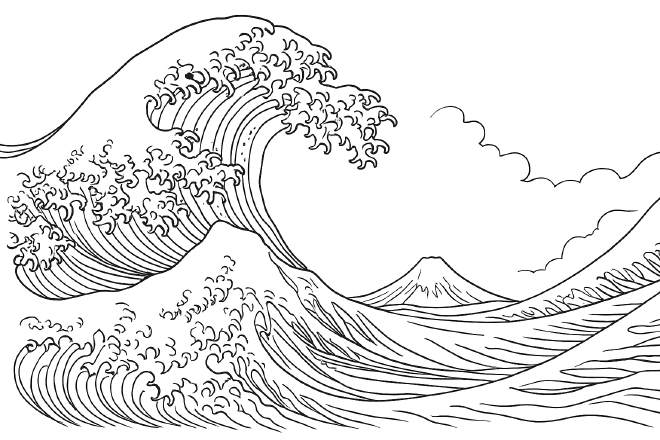Allow yourself to fail 🌊
I’m a recovering perfectionist. If I’d listen to my lizard brain, I would avoid doing something altogether rather than trying and risk failure. Here are my thoughts on how to better deal with failure.

Why failure is good #
There are several reasons why learning to cope with failure is valuable.
- If you never fail, it means you never work close to the top of your ability. You’re voluntarily limiting yourself and doing a suboptimal job.
- You don’t learn as quickly. When we fail, the brain literally generates signals that help strengthen learning pathways and improve future performance.
- The return on investment decreases as you get closer to “perfection”. When the solution is already good, it takes a lot of work to make it just a little bit better.
- Even if you create a “perfect” solution given current circumstances, the product and technology landscape changes quickly. Today’s perfection is tomorrow’s junk.
- It is more fun not to be afraid. 😊
So how do you do it? How do you learn to handle failure? I cannot claim to have a perfect answer (or I’d probably have a lucrative career in psychology), but I can offer some tips that have helped me.
Share your shitty first draft #
Writers sometimes talk about the “shitty first draft”. The idea that the first version of anything is often not very good, not nearly as good as the final, refined version. To quote Anne Lamott who came up with the phrase, All good writers write them. This is how they end up with good second drafts and terrific third drafts.
So to learn to cope with failure, allow yourself to write shitty first drafts. It’s ok for the first version not to be perfect, or even good. In my experience, it is often much easier to critique and refine an existing solution than to come up with the first one. Getting started is often the single hardest part of a project. (In particular as a perfectionist.)
Once you’ve accepted that it is ok for the first draft not to be great, you’re ready for the next step. Share your first draft. Show it to your colleagues. Getting that draft out is the first big win. The first draft should be celebrated!
Getting the first draft out to your colleagues allows you to get early feedback. Perhaps everything looks just right, then you can continue with higher confidence. Perhaps a colleague can provide valuable early feedback, saving you from hours or days of rework later.
But even after you share, there’s another trap: tying your identity to the outcome.
Don’t stake your identity on outcomes #
When you share your first draft, or release the final version, it is natural to hope that it will be appreciated. However, if you strongly identify with an outcome, you may feel threatened if that outcome does not materialize.
Don’t think to yourself “if this draft is not good, it means I am a bad writer” or that “everything I do must be perfect”. Instead say “I am a person who does whatever it takes to reach a good solution, I have no pride in how I get there.”
It can be helpful to think of it as an experiment where you are testing a hypothesis. The experiment is successful no matter if the hypothesis is proven correct or not, because testing the hypothesis is the goal of the experiment. What you get isn’t failure, but feedback.
For example, our family recently rented a camper van. We secretly dreamt of replacing our regular car, using the camper van both as a daily driver and for quick weekend getaways. While the trip was great, we quickly realized the van was too small for our family. If I had allowed myself to become too emotionally attached to the idea of buying a camper van, I would have felt a big loss. (Or even worse, bought the van anyway!) However, if I view the trip as an experiment to validate the van-owning hypothesis, it was a great success.
Similarly, if you are emotionally tied to a particular solution or approach, you will feel vulnerable if someone suggests another one. So instead of saying “I am a React developer”, say “I am a web developer”, or even “I am a problem solver that helps users”.
Have no fear of the ocean #
As a perfectionist, learning to accept failure has been difficult. It took courage to start sharing my drafts as my natural instinct was to hide them until I had perfected them. It took practice to learn to think of solutions as experiments where a negative result is as valid as a positive one.
In Unlearning Perfectionism by Arun Prasad, he uses a poetic phrase to describe a perfectionist.
She dwells in puddles for fear of the ocean.
My lizard brain wants me to stay in the safe puddle, but the ocean is where growth happens. I want to learn new things, even if it means being a newbie. I want to share my writing, even if I risk being laughed at. I want to be out on the ocean.
Where do you want to be?